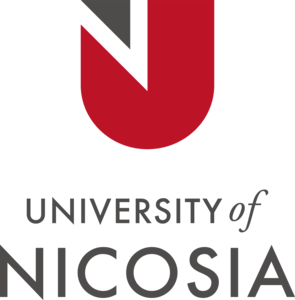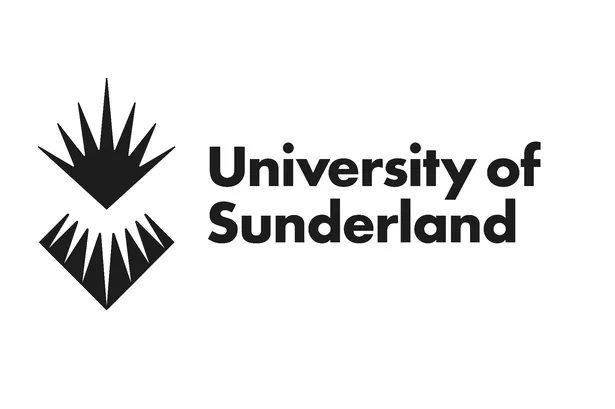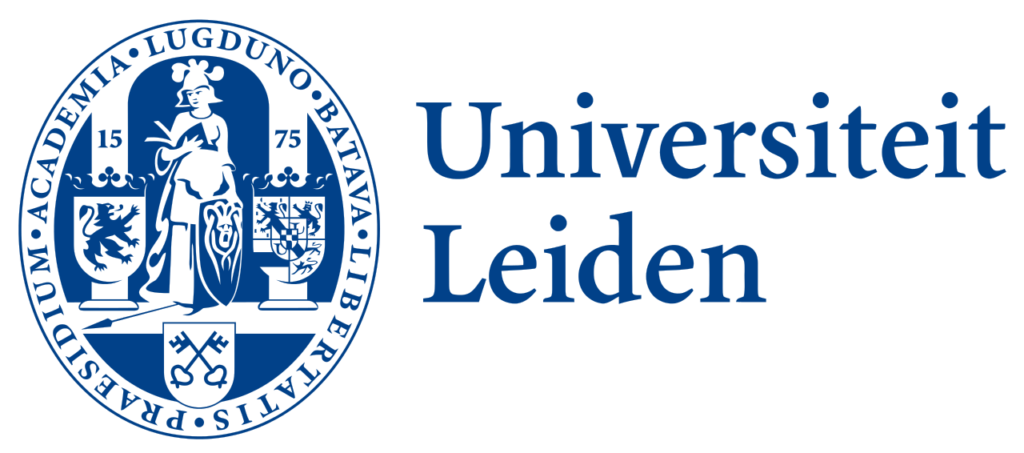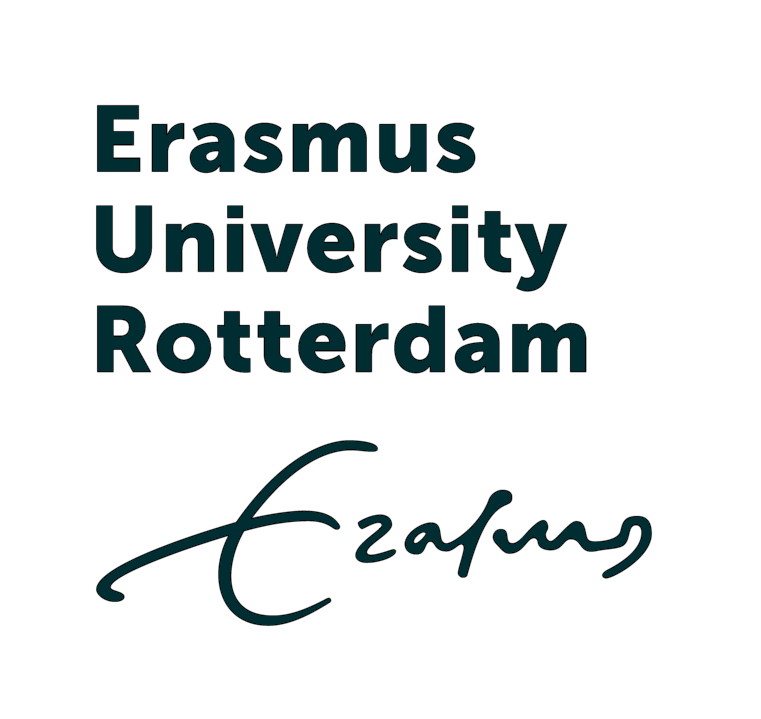American Universities in Europe
Getting a U.S. degree at American universities in Europe
American universities in Europe provide a unique blend of international diversity and American-accredited education, catering to students from around the globe seeking a U.S. degree outside the United States. These institutions offer a wide array of programs across various disciplines, with courses conducted in English, making them a desirable option for English-speaking students. The presence of American educational institutions in Europe is not a new phenomenon; these universities have been establishing campuses across the continent for decades, combining the American approach to higher education with the rich cultural experiences Europe has to offer.

The American University of Paris, Franklin University Switzerland, and the American University of Rome are just a few examples where students can pursue their academic ambitions in settings that fuse historical European culture with contemporary educational practices. These schools are accredited by relevant U.S. accreditation bodies, ensuring that the degrees earned are recognized both in the United States and internationally. Furthermore, the campuses boast diverse student bodies and opportunities for career development, from internships to study abroad programs, aiding in personal and professional growth.
Key Takeaways
- American universities in Europe offer accredited U.S. degrees and a diverse international environment.
- Educational experiences are enhanced by historic European settings alongside American academic standards.
- Programs are designed to promote global career opportunities and personal development.
Overview of American Universities in Europe
In an era of increasing globalization, American universities in Europe present opportunities for students to pursue US-accredited degrees abroad while experiencing diverse cultures. They stand as cross-cultural hubs combining American educational philosophies with European cultural richness.
Historical Development
American universities in Europe began etching their mark during the post-World War II era, with establishments aimed to serve US citizens abroad and Europeans seeking American-style education. These institutions evolved, not merely as study abroad options but as fully-accredited universities conferring degrees recognized both in the United States and host European countries. Their historical expansion reflects a growing interest in international education and cross-border collaborations.
Significance in Global Education
American universities in Europe are pivotal in fostering international perspectives among students, providing a unique blend of liberal arts education and specialized programs in fields such as business administration and political studies. They encourage a global outlook, which is increasingly valuable in today’s interconnected world. As education becomes more accessible internationally, these universities play a role in shaping global citizens.
List of American Universities in Europe
- Italy
- John Cabot University in Rome offers a wide range of subjects, from political science to business.
- France
- The American University of Paris boasts a central Parisian location and strong liberal arts and sciences programs.
- England
- The University of Evansville’s Harlaxton College in Grantham, provides a quintessentially British backdrop for studying abroad.
These institutions, among others in Europe, act as portals for students seeking an American education without venturing far from the European cultural experience.
Accreditation and Recognition
Accreditation serves as an essential benchmark for assessing the quality of education provided by American universities in Europe. These institutions often seek accreditation to ensure that their degrees are recognized both in the United States and within Europe. A reputable accrediting body for such institutions is the Middle States Commission on Higher Education (MSCHE), which is a U.S.-based agency.
American universities that pursue and achieve MSCHE accreditation demonstrate compliance with high educational standards. Accreditation by MSCHE signifies a rigorous review process and adherence to various quality assurances.
This reassurance is crucial for students who consider enrolling in American universities abroad, as it impacts the recognition of their degrees by employers and other educational institutions worldwide. Furthermore, some American universities in Europe may hold dual accreditation, meaning they are recognized by both American and European accrediting bodies, adding a layer of credibility to the degrees they offer.
Here is a brief overview of the accreditation aspects:
- Primary Accreditation Agency: Middle States Commission on Higher Education (MSCHE)
- Significance:
- Ensures quality education meets U.S. standards.
- Facilitates global recognition of degrees.
- Dual Accreditation:
- Enhances degree’s credibility.
- Recognized by U.S. and European entities.
Students are advised to confirm the accreditation status of their chosen institution prior to enrollment to safeguard the value of their educational investment.
FREE INSIDER’S GUIDE

Top 5 English-Taught Colleges in Europe
Kickstart you education abroad with a powerful degree taught entirely in English, all without taking on any student loans!
American University of Paris

The American University of Paris (AUP) is a notable institution that offers comprehensive international undergraduate and graduate programs. Situated in the thriving cultural hub of Paris, France, AUP boasts a global community that enriches student experience with diverse perspectives.
- Location: Paris, France
- Focus: Liberal Arts, International Studies, Business
- Established: 1962
Committed to delivering an American-style education in Europe, AUP blends the broad curriculum typical of the liberal arts with a strong foundation in international studies. Students at AUP can choose from a variety of majors, combining subjects like art history, international business, and global communications among others.
Faculty at AUP are experts in their fields, enhancing the learning environment with their professional insights and commitment to fostering critical thinking. This approach ensures that graduates are not only well-versed in their chosen disciplines but also equipped with the skills required to excel in a globalized workforce.
The university’s location in Paris provides an ideal backdrop for international education, granting students access to a multitude of cultural institutions and professional opportunities. AUP maintains an ethos of class unity and aims to encourage dialogue, extending learning beyond traditional classroom settings.
Student Demographics: Over 70 nationalities represented
- Liberal Arts
- Political Studies
- Business Administration
Facilities & Campus: AUP’s Quai d’Orsay Learning Commons offers state-of-the-art resources, while the urban campus positions students at the meeting point of France and international influences.
In short, the American University of Paris stands as a prestigious gateway to international education, presenting a unique combination of liberal arts and specialized study tracks within one of the world’s most captivating cities.
Franklin University Switzerland

Franklin University Switzerland is recognized as a pioneer among American institutions located in Europe. Nestled in the picturesque city of Lugano, Switzerland, it provides a distinctive blend of an American liberal arts education with international perspectives. The institution prides itself on its strong interdisciplinary academic programs which cater to undergraduate and graduate students.
The university offers a Bachelor of Arts, Bachelor of Science, and a Master of Science in International Management, all accredited in both the United States and Switzerland. Students benefit from a multifaceted educational approach that fuses classroom learning with real-world experiences.
Lugano serves as more than just the backdrop for Franklin University Switzerland. It is an integral part of the university experience. The city’s rich cultural landscape and its proximity to various international borders make it an idyllic location for students who are keen on immersing themselves in European culture and multilingualism.
The academic philosophy at Franklin places a high value on global exposure. Through the university’s Academic Travel program, students have the opportunity to engage with the subject matter of their courses in a tangible and immersive context beyond the classroom.
Key Features:
- Location: Lugano, Switzerland
- Programs: Undergraduate & Graduate Degrees
- Language: English
- Accreditation: US & Swiss
- Academic Travel: Intercultural Learning Experiences
With a strong emphasis on developing global citizens, Franklin University Switzerland stands out as a unique destination for students seeking an internationally-focused liberal arts education.
American University of Rome

Established in the majestic city of Rome, Italy, the American University of Rome (AUR) stands as a beacon of American-style higher education in Europe. Located atop the Aventine Hill, it offers students breathtaking views of the city. This university prides itself on its accredited status in the United States, ensuring that its degrees are recognized both domestically and internationally.
History & Academics:
AUR began its journey in 1969, becoming a distinctive institution combining the cultural riches of Rome with an American liberal arts education. With a history spanning over several decades, AUR has adapted and grown to offer a wide range of programs, from undergraduate to graduate degrees.
Enrollment & Environment:
- Welcomes a diverse student body
- Notable year-on-year increase in enrollment
- Small class sizes for an intimate learning experience
Campus Life:
The university not only overlooks the historical center of Rome but also embeds within its curriculum the rich, cultural history of its location, allowing students an immersive educational experience.
Internship Opportunities:
AUR facilitates valuable internship opportunities that leverage Rome’s international business and art landscape. This integration of practical work experiences with academics helps prepare students for their future careers, while also enriching their understanding of global issues.
Prospective Students:
Students considering AUR are often drawn to the melding of American education standards with the unparalleled cultural and historical surroundings that only Rome can provide. The coursework at AUR reflects this, offering a unique platform for international exposure and learning.
Learn more about AUR and its unique offering from their official website.
Academic Programs and Degrees
American universities in Europe offer a diverse range of degree programs encompassing both undergraduate degrees and graduate degrees. Students can pursue a liberal arts degree or specialize in programs such as business administration, political studies, or other majors.
For undergraduate students, a broad liberal arts education is typically available, which allows students to explore various disciplines before declaring a major. The curriculum often mirrors the flexibility found in the U.S., enabling students to make well-informed decisions about their academic and career paths.
At the graduate level, American universities in Europe provide programs catering to a global audience, including an acclaimed MBA. These business programs aim to develop leadership, strategic thinking, and cross-cultural communication skills, essential for success in international business environments.
| Degree Type | Description |
|---|---|
| Undergraduate | Foundational courses with an option to major in a chosen field |
| Graduate | Advanced studies with specialized concentrations |
| MBA | Focus on global business leadership and management |
Students benefit from a unique setting that combines American educational standards with a European cultural experience. Universities often boast international faculty and student bodies, creating a cosmopolitan atmosphere conducive to a globalized educational experience.
In summary, American universities in Europe represent an intersection of diverse academic traditions, offering students the opportunity to pursue internationally-recognized American degrees while immersed in European culture.
Student Life and Demographics
American universities in Europe offer a vibrant student life and present a melting pot of cultures due to their diverse student body. Typically, students from over 70 countries converge in these institutions, bringing a wealth of perspectives to the campus environment. With such international diversity, students participate in a range of cultural events and global dialogues, enhancing their education beyond the classroom.
- Student Body: The student population in these universities varies, but many institutions pride themselves on maintaining a low class size to ensure personalized attention and a supportive learning environment.
- Study Abroad Program: These campuses serve as popular destinations for study abroad programs, especially for those seeking an American-style education within a European context.
- Language: English remains the primary language of instruction, which facilitates accessibility for international students and encourages a more inclusive campus milieu.
- Academic Focus: The curriculum often focuses on liberal arts, political studies, and business administration. Quality of teaching is bolstered by expert faculty, many of whom have international teaching experience.
| Aspect | Detail |
|---|---|
| Class Size | Small to Medium |
| Primary Language of Instruction | English |
| Popular Academic Focuses | Liberal Arts, Political Studies, Business |
American universities in Europe remain committed to upholding high academic standards and ensuring a dynamic yet inclusive community for all their students.
Discover all the English-taught European college programs in one place.
Beyond the States provides easy access to 11,600+ European bachelor’s and master’s programs across 870 universities, 550 cities, and 212 areas of study, plus all the resources you need to get there. No sponsorships. No bias.
3400+
English-taught bachelor’s programs in our database.
550
Beautiful European cities to choose from.
$360,170
Typical savings against a private university in the US.
8200+
English-taught master’s programs in our database.
870
Top-tier universities accepting international students.
$65,038
Typical savings against in-state tuition in the US.
Career Development and Internships
American Universities in Europe place a strong emphasis on the professional growth of their students. They recognize that practical experience in the form of internships is an invaluable complement to academic studies. Universities like St. John’s offer extensive internship programs in cities like Paris and Rome, providing students with hands-on experiences in a variety of sectors.
Internship Programs
- St. John’s University runs semester and summer programs offering internships for academic credit.
- The American University of Rome assists in crafting CVs and helps navigate job opportunities through their Career and Internships Program office.
- Paid internships, like the ISTernship Summer Programme in Austria, offer international students the opportunity to be part of research projects and connect with top research centers.
In terms of career development, these programs usually offer workshops, one-on-one career advising, and networking opportunities within a global context. Students often get a chance to work with multinational companies, which can be a stepping stone to successful international careers in business and other fields.
Internship Benefits
- Global work experience: broader understanding of different business practices and cultures.
- Skill development: practical application of learned theories in a real-world setting.
- Professional networking: connects students with industry professionals and alumni.
Study Abroad and Exchange Opportunities
American universities offer diverse study abroad and exchange opportunities for students seeking international experience. These programs enable participants to immerse themselves in different cultures while continuing their education overseas. Students have the choice of short-term, semester, or even full-year exchanges.
Short-Term Programs: Usually during the summer or winter breaks, these programs offer a quick yet enriching experience. They encompass a variety of subjects including language immersion, international studies, and specialized field work.
Semester/Yearly Exchange: These longer exchanges provide a deeper cultural immersion and a chance to take courses that may not be available at a student’s home university. Students often gain credits towards their degree, making the experience both academically and personally rewarding.
Eligibility and Application Process: Typically, undergraduates must have completed at least one year of study and meet a certain GPA requirement. Applications generally require academic transcripts, a statement of purpose, and sometimes a language proficiency test.
Cost Considerations: Costs vary widely but can include tuition, travel, housing, and living expenses. Scholarships and financial aid are often available to help offset the costs.
- Tuition Fees: For a comprehensive understanding of university fees, browse our database of 100% English-Taught degree programs that includes various American universities in Europe.
- Scholarships: Some students may find scholarships that specifically fund study abroad opportunities.
American universities in Europe proactively support international study experiences by maintaining a strong network of partner institutions. This allows students to reap the benefits of global education while earning credit towards their American degree.
Financial Aid and Scholarships
American universities in Europe offer a variety of financial aid possibilities and scholarships to international students. The financial aid opportunities are designed to accommodate students from different economic backgrounds, ensuring that education is accessible to a diverse student body.
Scholarships
- Merit-based: These scholarships are awarded based on a student’s academic, artistic, or athletic achievements.
- Need-based: These scholarships depend on the student’s financial need and often require proof of income.
Fully Funded Scholarships:
- Students may apply for fully funded scholarships that cover the full cost of tuition, like those offered through programs such as the DAAD Scholarship for studies in Germany.
Tuition Fees
- Undergraduate Programs: Fees range from €4,000 to €18,000 per year.
- Graduate Programs: Fees range from €5,000 to €20,000 per year.
Financial Support Schemes
In Europe, there are many scholarships and financial support options which may cover partial or entire tuition fees and living costs. With hundreds of thousands of scholarships available, it is crucial for students to research and apply for the financial support that suits them best.
Utilizing U.S Government Loans
- American students may use FAFSA to fund their studies in Europe at participating institutions.
- Approx. 750 foreign institutions are approved for FAFSA loans.
It should be noted that competition for financial aid and scholarships can be substantial, and students are encouraged to begin their scholarship search early.
Alumni Outcomes and Networks
American universities in Europe have established dynamic alumni networks that play a significant role in providing opportunities and resources for their graduates. These networks facilitate connections between alumni, fostering a supportive community that extends well beyond graduation.
Alumni outcomes have been positively influenced by the strength of these networks. They serve as platforms for job opportunities, mentorships, and professional development. Graduates often leverage their alumni connections to navigate their career paths more effectively, illustrating the value of these associations.
The International Alumni Matters initiative highlights these networks’ shift towards a fee-based system that provides institutions with greater financial autonomy. This move has reinforced the importance of alumni as key stakeholders in the university’s financial sustainability and success.
Alumni networks are also adapting to the changing landscape of technology and communication. With a global outlook, universities have been integrating advances in technology to maintain and enrich these networks, ensuring active engagement across various regions, including Europe, as noted by the European Association for International Education (EAIE).
Key Highlights:
- Professional Opportunities: Alumni gain access to exclusive job listings and professional development resources.
- Mentorship: Seasoned professionals offer guidance to recent graduates, enhancing their career trajectories.
- Global Connection: Networks such as the Erasmus+ Programme Alumni and GaragErasmus support international mobility and cooperation.
- Financial Autonomy: Alumni contribute to the financial health of their alma maters, reflecting a shift towards more self-sustaining educational models.
The proliferation and growth of these alumni networks underscore their fundamental role in shaping the post-graduation success of students from American institutions abroad.
Regional Focus
American universities in Europe provide students with an education system grounded in American standards combined with the rich cultural backdrop of their host countries. Students can choose from a variety of institutions across Europe, each bringing a unique blend of local culture and American education.
American Universities in Italy
In Rome, Italy, institutions like The American University of Rome and John Cabot University stand out. These universities offer comprehensive American-style higher education in one of Italy’s most historically rich cities.
American Universities in France
Paris, France, is home to The American University of Paris, which marries the Parisian experience with American-accredited degrees, creating a cosmopolitan hub for international scholars.
American Universities in Switzerland
In Switzerland, students can find exceptional education at institutions such as Franklin University Switzerland in Lugano and Webster University Geneva. These campuses offer a truly global perspective within the Swiss setting known for its natural beauty and international character.
American Universities in Greece
Greece hosts the American College of Greece in Athens and the American College of Thessaloniki. These establishments provide students both American-accredited degrees and the opportunity to immerse themselves in Greek culture and history.
American Universities in Other European Countries
Beyond these countries, American universities also exist in Germany, the United Kingdom, and Austria. These institutions serve as gateways to the American education system while providing students access to the diverse cultures and experiences of their European host nations.
Frequently Asked Questions
In exploring options for higher education, students often consider earning an American degree abroad. This section addresses key questions about American universities in Europe, from accreditation to program availability.
What are the top accredited American universities in Europe?
Several American universities in Europe boast accreditation by the US-based Middle States Commission on Higher Education (MSCHE). They include institutions offering a wide range of degrees that are recognized both in the United States and internationally. You can research the top accredited American universities in Europe here.
Which American universities in Europe offer the most affordable tuition fees?
Tuition fees vary widely among American universities in Europe. Prospective students should conduct thorough research to find programs that combine academic excellence with affordability. Resources like our own Beyond The States database can provide insights into universities that offer competitive tuition rates.
How do American degrees from European institutions compare in terms of recognition?
Degrees from accredited American universities in Europe are generally well-regarded and hold the same level of recognition as degrees obtained from universities in the United States. Graduates can pursue career opportunities globally, with their American degree being a credible qualification.
Can American students directly enroll in universities in Europe, and what are the requirements?
American students can directly enroll in many European universities, with requirements varying by institution. They may need to navigate a different application process compared to domestic European students, and should be prepared to provide academic transcripts, language proficiency proof, and sometimes standardized test scores.
What are the unique advantages of attending an American university in European countries like Italy or France?
Studying at an American university in Europe allows students to immerse themselves in a new culture while still following an American-style curriculum. This can offer a unique blend of international experience and familiarity, especially in culturally rich countries like Italy or France, with the added benefit of potentially learning a new language.
Do American universities in Europe provide programs in English, and what range of majors are available?
American universities in Europe offer a vast array of programs in English, covering liberal arts, business, political studies, and various other fields. This ensures that students can pursue their majors without facing language barriers. Detailed information about available majors and academic offerings can be found on each university’s website.

















